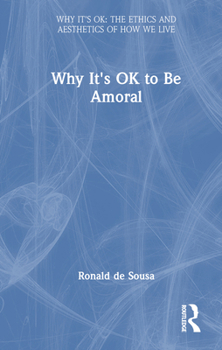Why It's Ok to Be Amoral
Why It's OK to Be Amoral argues that self-righteous moralism has replaced religion as a source of embattled and gratuitous certainties. High-minded moral convictions invoke the authority of sacred moral truths, but there are no such truths. In reality, moral passions are rooted in atavistic emotional dispositions and arbitrary social conventions. While public and private discourse is saturated with guilt, shame and righteous indignation,...
Format:Hardcover
Language:English
ISBN:1032235551
ISBN13:9781032235554
Release Date:November 2024
Publisher:Routledge
Length:196 Pages
Related Subjects
PhilosophyCustomer Reviews
0 rating





